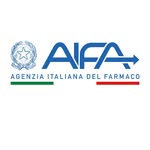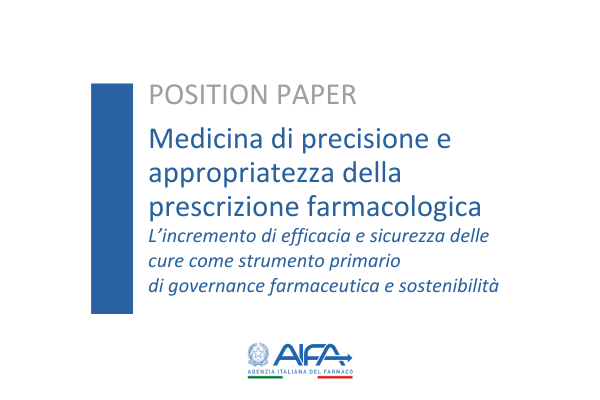.png) Agenzia Italiana del Farmaco
Agenzia Italiana del Farmaco
Scientific Seminar on informed consent in COVID-19 vaccine trials
A recent study on accessibility and comprehensibility of informed consents used in trials for COVID-19 vaccines has highlighted its excessive length and difficult reading. Informed consent as an essential element of research ethics is the subject of the AIFA Seminar attended by Ezekiel J. Emanuel, Levy Professor at the University of Pennsylvania, AIFA Director General Nicola Magrini and by prof. Laura Palazzani, deputy vice-chair of the Italian Committee for Bioethics.
Video
Pubblicato il: 24 June 2021
Abstract
Informed consent consists of 4 elements:
- Competence of the subject;
- Disclosure of information to the subject;
- Understanding or comprehension by the subject;
- Voluntariness of the decision.
Current informed consent documents are failing to comply with such desiderata – especially participant comprehension. Moreover, informed consent should be considered as a process, a discussion, not just the moment when someone signs such document.
The relevant issues in current informed consent documents are: length, readability and comprehension.
From 1978 to 2002 the length of the consent forms increased roughly linearly by an average of 1.5 pages per decade, so documents became longer and longer.
A 2014 study of 112 medical oncology informed consent forms for Phase 1-3 studies found a median length of 20 pages (with a 8-28 pages range). An analysis of 217 IRB (Institutional review board)-approved informed consents from 2013 to 2015 revealed a mean readability of 10th grade of the Flesch-Kincaid grade level (which roughly corresponds to a 16 year-old education in the US), so the vast majority of such documents proved to be too complex. In 2001 Joffe et al. interviewed 207 cancer clinical trial (CT) patients, most of whom considered themselves to be well informed, but many did not recognise non-standard treatment, the potential for incremental risk from participation and the uncertainty of the benefits.
Covid-19 vaccine CTs have been the most visible trials in more than 30 years and enrolled over 150,000 participants all over the world. A study was recently conducted collecting the informed consent documents for the four top COVID-19 vaccine trials: Vaxzevria (AstraZeneca), COVID-19 Janssen vaccine, Spikevax (Moderna) and Comirnaty (Pfizer/BioNTech). The key question was whether and in which measure informed consent documents from COVID-19 vaccine trials achieved the ideal of being succinct and readable.
Four issues were analysed: the length of these informed consent documents; time-to-read; language complexity (e.g., what grade level was necessary to understand the document); readability, which depends upon the complexity of the words used.
In summary:
- The 4 informed consent documents were too long, with an unreasonable time burden for participants, which hampered comprehension thus creating pressure to skim.
- They proved too difficult to read, posing a potential comprehension challenge for participants with lower education levels.
- Why are these documents too complicated and not easy to read?
- Ethics reviewers may not insist on shorter, more readable documents or may even require additional material that they think will improve information transfer.
- Informed consent documents may be created by copying section from previous documents.
- Legal teams may prioritise exhaustive details to prevent lawsuits over participants’ comprehension.
The results of this study suggest that the practice of informed consent has been compromised by lengthy, complex documents. Informed consent should be conceived as a process and a dialogue between the researcher and the participant, therefore, researchers should be trained to be also good communicators. Moreover, organisations involved in CTs should hire an editor rather than leaving the drafting of informed consent documents to researchers and legal teams without expertise in clear writing.
Bibliography
- Emanuel EJ, Boyle CW. Assessment of Length and Readability of Informed Consent Documents for COVID-19 Vaccine Trials. JAMA Network Open. 2021;4(4):e2110843. doi:10.1001/jamanetworkopen.2021.10843
- Hadden KB, Prince LY, Moore TD et al. Improving readability of informed consents for research at an academic medical institution. Journal of clinical and translational science vol. 1,6 (2017): 361-365. doi:10.1017/cts.2017.312
- Joffe S,Cook EF, Cleary PDet al. Quality of informed consent in cancer clinical trials: a cross-sectional survey. Lancet. 2001 Nov 24;358(9295):1772-7. doi: 10.1016/S0140-6736(01)06805-2
- Tadros R, Caughey GE, Johns S et al. Comprehension and recall from the informed consent process by phase I healthy volunteers before dose administration. Clin Trials. 2019 Jun;16(3):283-289. doi: 10.1177/1740774519834257.







